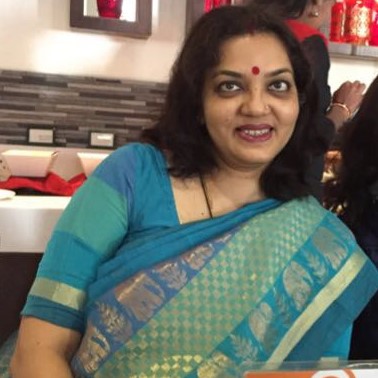This city that I call home has been a cornucopia of lessons since I moved here all those years ago, as a rebellious teenager, chafing at being made to leave a city, which had been home for many years and the centre of those turbulent teenage years.
Madras has enlarged my mind and expanded my vision in myriad ways. I moved here decades ago from Calcutta, when it was still called ‘Madras’. Perspective comes in shades of grey and Madras has unveiled a canvas with dollops of grey here and there. Let me flow forth on my lessons learned in this city—good, bad and ugly—without classifying them, as many a time, what is good for the goose is gross for the gander!
Lessons in Simplicity
Everyone I met—native Tamilians, naturalised Madrasis (in the city for a few/many years)—breathed simplicity. They could be affluent, holding high positions, doyens of art and culture, movers and shakers in their domain, middle-class, lower middle-class and they were all swathed in simplicity. Simplicity of demeanour, dress, lifestyle, food and—I would go out on a limb and say—outlook.
An authenticity that translated into an inner aura of enveloping warmth, sans any affectation. That was Madras and continues in Chennai!
Incidentally, I realised how cherished and primal a virtue simplicity was, when my fiancé (a Chennaiite) was asked about what he liked in me, and the answer was, you guessed it—“her simplicity”!
Lessons in Faith
Never before had I witnessed such allegiance to religion and observance of tradition. My neighbours would flock to the temple almost every other day and mandatorily on Fridays and I would join them. The whole process of prayer, offerings, circumambulation, and then spending some quiet time in the temple compound, followed by conversation in the temple square was a revelation and a learning as well.
Back in Calcutta, I could possibly count the number of times I visited temples, and this is not a reflection of any lack of faith. My family was like any other family in Calcutta—god-fearing, ritual observing and puja-performing at home and occasionally at temples. But the clockwork regularity of temple visits, which I witnessed in Madras, was an eye-opener.
And as I soaked in more of this city, I realised that this ritual imbued in deep faith, permeating the consciousness and everyday life of the average citizen, had probably forged his/her sense of equanimity and centeredness.
Lessons in Functionality and Economics
I have clubbed these two as they are intertwined in my experiences in the city. One of the first questions I was asked by my new nine-year old neighbour was what my father was working as, and how much rent we were paying for the house. I was stumped, shocked and silenced. A nine-year old so clued in, all those years ago?
Maybe the question wouldn’t have thrown me off-balance in 2019, when children are no longer children in terms of awareness and exposure. I very quickly realised that economics was a genetic thing for most Tamilians and awareness about money at any age, was quite the norm. Most of the ones I knew saved money easily and well and spent only on items that were perceived to be of use, essential and functional, not for mere admiration.
I was once was invited to a neighbour’s beautiful house only to discover that inside, it was a bare home with only the minimum essentials—a couple of chairs, a TV on a stand, mats rolled out in the bedroom—Spartan in its simplicity and functionality. It was not for want of money (they were rolling in it) but for faith in function and utility that equalled to saving money.
Frugality extended to food too. Eating out was considered unnecessary, a taboo for the orthodox, and a luxury from the typical Madras standpoint. The very antithesis of Calcutta food culture! Chennai today paints a very, very different culinary canvas! Eating or buying (the Swiggies and Zomatos are ubiquitous) out IS the norm, the more the merrier and with delectable diversity to suit every palate.
Functionality almost dictated academia as well. I remember feeling chilled to the bone when I heard there was talk of removing non-functional, non-utilitarian subjects as English Literature, Sociology, the Humanities stream essentially, from college syllabi. As it was, Humanities students had very little to choose from here. Till then, I had never known that this noble, nurturing stream of education could classify as non-utilitarian. In the Chennai of 2019, Liberal Arts is in resurgence, though the Sciences and Commerce still hold greater sway.
Lessons in Work Culture
Work is work in Madras/Chennai, even in the government or governmental institutions (which are justifiably maligned in many other states)—be they banks, railways, post offices, educational institutions, companies, crafts showrooms, tourist offices, All India Radio or hospitals. Order, structure, professionalism, discipline, courtesy is more the rule than the exception, unlike possibly Calcutta (is it better now, Kolkatans?) and one enters the institution fully expecting the work to be completed, if not immediately, at least within a reasonable time. The government-nationalised/private divide is not a chasm as it is in many other states, thus benefiting the citizenry. Public servants truly serve here.
Lessons in Sanctity of the State Language
Though we had come to Madras at the height of the anti-Hindi agitation, I hadn’t felt compelled to learn Tamil with much gusto, till an experience as a management trainee in a five-star hotel knocked the complacency out of me. Stationed at cash that evening, I was handing over a wad of notes to a gentleman when he said something in Tamil that I did not comprehend and hence excused myself with a ‘I beg your pardon?’ He unleashed a verbal Tamil tidal wave and my colleague quickly took over from me in Tamil.
After he left, my colleague translated the Tamil torrent for my benefit. Very plainly put, “You are representing a five-star hotel in the capital of Tamil Nadu and you cannot understand and speak the language!” Obviously, a lacuna that was lamentable in his eyes (he was incidentally a leading politico) and not acceptable.
That experience was a blow to the gut. The least I could do was to learn the language of the state (at least basic Tamil) that was obviously my home now and seemed averse to let me leave. “Learn Tamil in 30 days” became my companion as did translation requests to my colleagues and friends.
And did they all help! Ice melted sooner than it had ever before! Now, auto and cab drivers are very impressed with my Tamil—I never divulge the actual number of years I have been in Chennai, keeping it to a maximum of a decade. My husband, who knows better, wears a pained expression when I hold forth in Tamil.
Walking the Middle Path
I came from an ‘adda’ culture, where conversation was music to the ears, debate was entertainment, and voicing opinions were de rigueur—the more, eloquent, deep, intellectual, philosophical, lyrical, distinguished, different, fluent, avant-garde, the better. It was deeply ingrained in every Calcuttan’s character.
Madras was all about the middle path, moderation and neutrality especially on political, historical and economic subjects. Very seldom would someone offer a contrarian view or go against the current grain. Most often s/he would just proffer a gentle smile and a soothing “Let it be”. Which meant that no conversation would reach a crescendo, there was no threat of conflict looming on the horizon, and most significantly no unpleasantness on account of expression of strongly held views, no mental and concurrently no physical agitation. Everyone departed in peace, calm and comfort.
Lessons in Adjustment
Konjam adjust pannikonga (roughly translating to ‘adjust a little’). A venerable, pervasive Madras-Chennai statement—seated at a bus stop, sitting inside the bus, taking a day off/coming late to work, at a supermarket without small change, at the temple, in a queue, in a bank, a dining hall at a wedding, restaurant, doctor’s, hospital, hotel room, Electricity Board, Metro Water… the list is endless and all-encompassing. So is the reality.
Citizenry here are truly much more accommodating and adjusting than their brethren in many other parts of the country. ‘It is my Right, and I must have it’ is diluted in the face of a common goal and eschewing from argument and conflict.
Meeting Modernity while Tending to Tradition
In Chennai, old does not give way to new, instead there is happy, peaceful cohabitation. Ancient yoga with a new twist draws the young and old in hordes. Inter-community/region/caste marriages among the educated are more smiled upon, than frowned-upon. Gay pride marches, running for a cause, walkathons, marathons, Chennai is the living epitome of a happy marriage of tradition and modernity.
As the tide ebbs and flows and the waves alternatively crash on and caress the majestic Marina Beach, ‘Live and Let Live’ whispers the wind as it tousles the hair around my face.
Indeed, you do Madras-Chennai, my home and my hearth—Live and Let Live!
Want to share your story of how you thrive? Write to us at [email protected]


